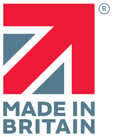Organisations run on processes and when they are poorly designed or outdated - inefficiencies can occur, disrupt productivity and lower revenue and profit margins. Research has found that companies can potentially be losing as much as 30% of revenue due to process inefficiencies, yet many businesses are unaware of what inefficiencies are affecting them.
What causes process inefficiencies?
Inefficiencies tend to sneak into processes in time, especially during business growth when teams are taking on new tasks and responsibilities. As often little time is given to review the process needs to be done or whether it is repeatable in the long-term.
Employees are just trying to concentrate on finishing their tasks without looking at how to do this as efficiently as possible. They carry on how with it as it worked beforehand. The key here is that when requirements change or the business is experiencing growth, old and new processes need to be assessed regularly, ensuring they’re streamlined and efficient.
The equipment used can be a cause of inefficiency. Legacy equipment could be out-of-date or no longer suitable for the task in hand, requiring more maintenance leading to a significant disruption to operational productivity. Sometimes you need to replace and invest in equipment in order to maximise efficiency levels.
However, new equipment can also be inefficient as staff need to build familiarity with it but, after a while, the process should become much more profitable.
Another common occurrence of process ineffectiveness is related to purchasing, storage, allocation and use of resources. Having excessive materials can lead to storage issues, the potential degradation of the resources if stored too long, trouble locating items or even staff members wasting time trying to find the relevant resource.
How does this cause disruption?
The main disruptions caused by inefficiencies are waste items and items being idle. The costliest is waste because it is not just about the time lost when work needs to be redone: it is also about the materials lost in the process and the cost of using equipment to rework the process.
If your average cost per item is £10 and your waste is around 10%, then the actual cost is £11 per item, assuming there is no additional waste. Needless to say, if you work in an industry with tight margins, this can be a significant proportion of your profits.
With idle inefficiencies, the cost is more difficult to calculate. It essentially refers to the time that resources, machines or teams that are not being productive or efficient during working hours. It could be when teams not communicating effectively or when machines/teams aren’t in use because they're waiting for resources or the machines are down etc. For example, if on average a worker produces 10 items per hour that sell at £2 profit per item, for every hour a worker is idle it can cost the company £20 in profits.
While on its own that doesn’t sound too high, over a week, month or year, the costs of inefficiencies in your business can be significant. Research has found from something simple such as inefficient communication the average UK worker wastes approximately £8,000 a year per employee and that on average 70% of the UK workers’ days are spent communicating and collaborating. If the technology in place cannot support this, it can cause even more inefficiencies.
How to reduce inefficiencies in your business and stop the disruption
There is no way that you’ll ever be able to remove 100% of inefficiencies in your business. However, you can reduce them by regularly reviewing internal processes, to pinpoint where the inefficiencies are occurring. Sometimes small adjustments can improve the process, but sometimes it may require some investment whether it is resources, equipment or new business systems.
Having an integrated business system in place can help you find where your processes are being held up and why. Then you can analyse the results and find solutions for making the process better for your business and teams.





.png?width=137&height=137&name=MicrosoftTeams-image%20(4).png)